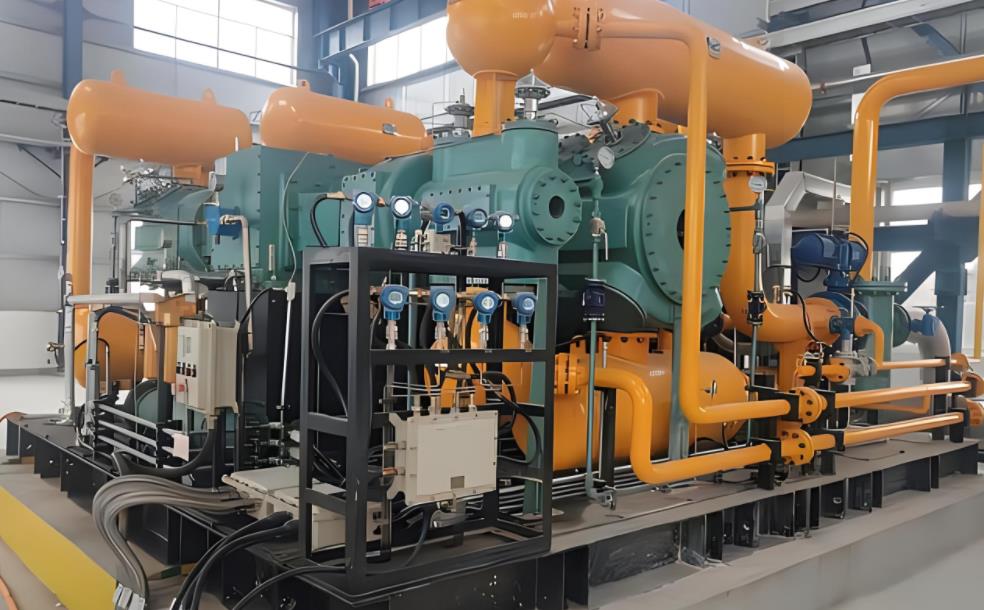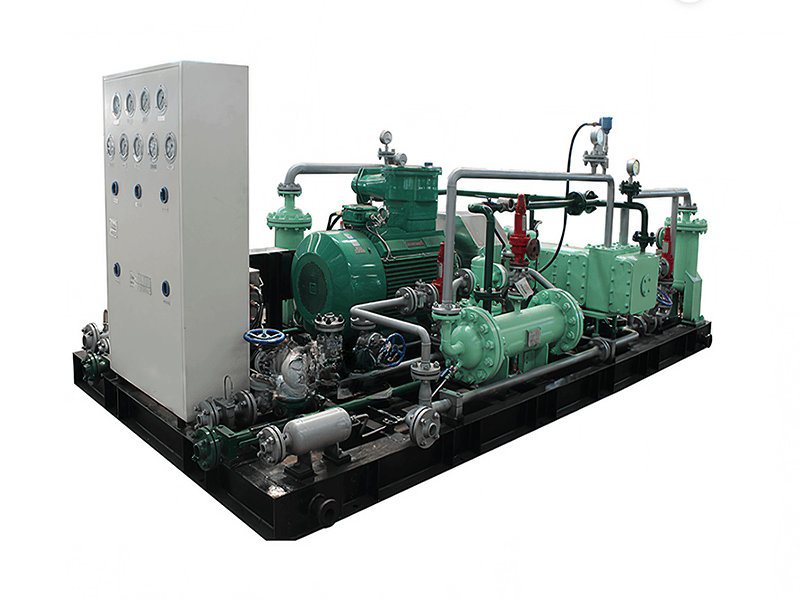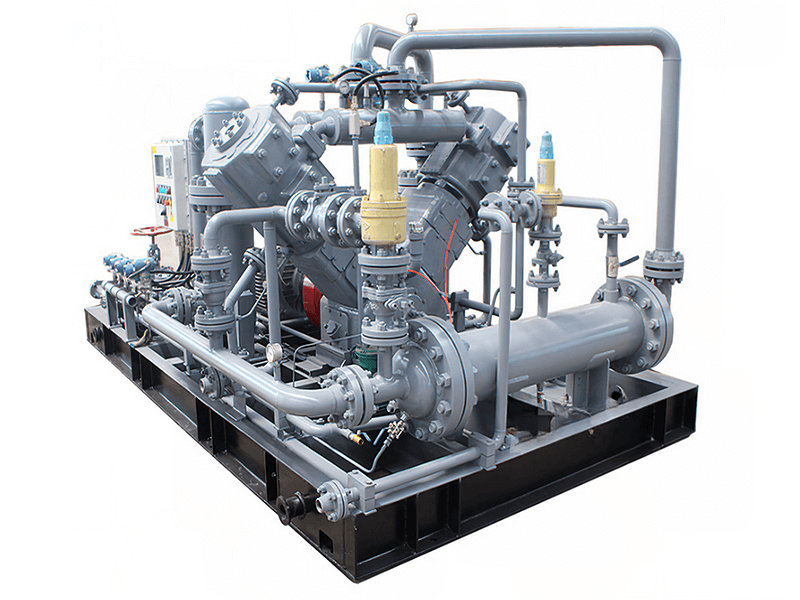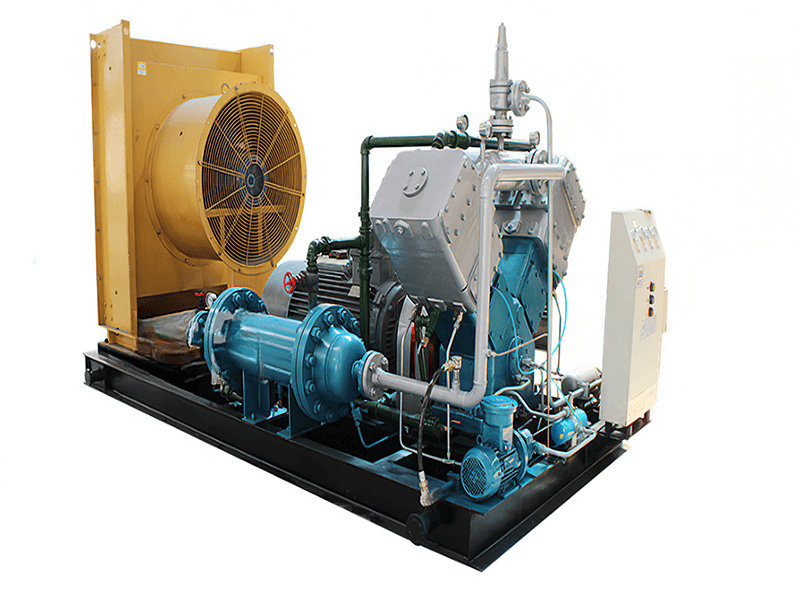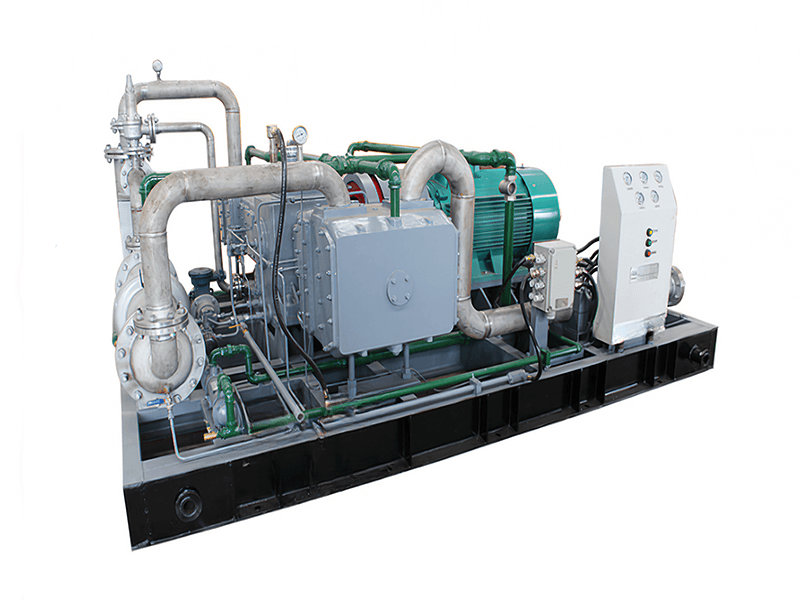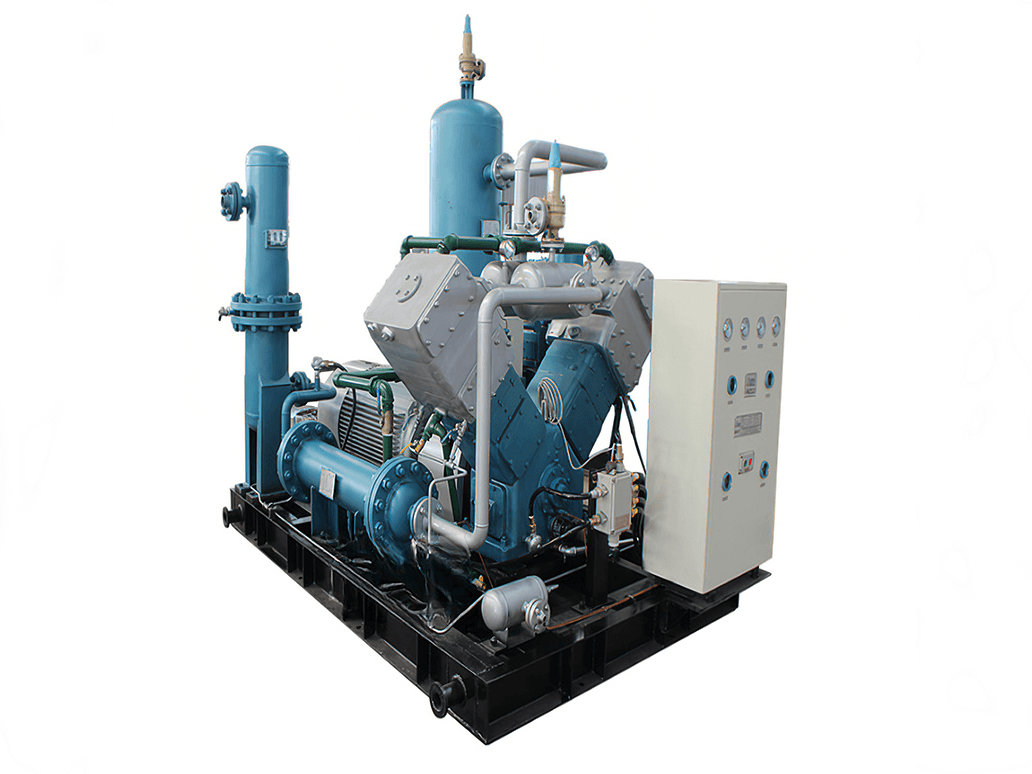When selecting or designing an ammonia compressor, certain key requirements need to be considered to ensure efficient and effective operation within industrial applications. Here are some essential requirements for ammonia compressors:
1. Capacity and Flow Rate:
Requirement: The compressor should be able to handle the required capacity of ammonia gas flow for the specific application.
Considerations: Matching the compressor's capacity with the system's demands to ensure efficient operation and performance.
2. Pressure Ratio:
Requirement: The compressor should be capable of achieving the necessary pressure ratio for the refrigeration or industrial process.
Considerations: Ensuring that the compressor can produce the required discharge pressure relative to the suction pressure.
3. Efficiency:
Requirement: The compressor should operate efficiently to minimize energy consumption and operational costs.
Considerations: Selecting a compressor type and design that offers high efficiency levels for the intended application.
4. Reliability and Maintenance:
Requirement: The compressor should be reliable with minimal downtime and require manageable maintenance.
Considerations: Choosing a compressor with a reputation for reliability and considering ease of maintenance tasks.
5. Material Compatibility:
Requirement: The compressor materials should be compatible with handling ammonia gas without degradation or corrosion.
Considerations: Selecting materials that can withstand the chemical properties of ammonia to ensure long-term durability.
6. Oil Management:
Requirement: For oil-lubricated compressors, effective oil management systems should be in place to prevent oil contamination of the ammonia system.
Considerations: Implementing proper oil separation and management techniques to maintain system efficiency and purity.
7. Safety:
Requirement: Compressors should meet safety standards and regulations to ensure safe operation with ammonia, which can be hazardous if not handled properly.
Considerations: Incorporating safety features and protocols to safeguard against leaks, overpressure, and other potential risks.
8. Environmental Impact:
Requirement: Compressors should be designed with considerations for environmental impact, such as energy efficiency and emissions.
Considerations: Opting for environmentally friendly compressor designs and technologies to reduce carbon footprint and overall impact.
9. Control and Monitoring:
Requirement: Compressors should have effective control and monitoring systems to optimize performance and troubleshoot issues.
Considerations: Implementing advanced control systems for efficient operation and real-time monitoring of compressor parameters.
Addressing these requirements ensures that the chosen ammonia compressor meets the specific needs of the application, operates effectively, and complies with industry standards and regulations for safe and efficient ammonia handling.

Ammonia compressors play a crucial role in various industries where refrigeration, cooling, or gas compression is required. The specific requirements for these compressors can vary depending on the industry and application. Here are the key requirements for ammonia compressors in different industries:
1. Food and Beverage Industry:
Requirements:
Hygiene: Compressors should meet sanitary standards to prevent contamination of food products.
High Efficiency: Energy-efficient compressors to minimize operational costs.
Reliability: Continuous operation for preserving perishable goods.
Capacity: Compressors must match the cooling requirements of food storage and processing.
2. Cold Storage and Refrigeration Industry:
Requirements:
Capacity and Efficiency: Compressors should handle varying loads efficiently.
Temperature Control: Ability to maintain precise temperature levels.
Reliability: Dependable operation for preserving perishable goods.
Safety: Compressors should meet safety standards to prevent ammonia leaks.
3. Chemical Industry:
Requirements:
Corrosion Resistance: Compressors should use materials resistant to chemical corrosion.
High Pressure Handling: Ability to compress ammonia at high pressures for chemical processes.
Precision Control: Compressors should provide accurate pressure and flow rate control.
Safety: Compressors must adhere to safety standards due to the hazardous nature of chemicals.
4. HVAC Industry:
Requirements:
Energy Efficiency: Compressors should be energy-efficient for air conditioning systems.
Quiet Operation: Low noise levels for residential and commercial HVAC applications.
Variable Capacity: Ability to adjust capacity based on cooling demands.
Reliability: Continuous operation to maintain indoor comfort levels.
5. Pharmaceutical Industry:
Requirements:
Cleanliness: Compressors should be designed for cleanroom environments.
Oil-Free Operation: To prevent contamination of pharmaceutical products.
Precision Control: Accurate pressure and temperature control for sensitive processes.
Reliability: Non-stop operation to maintain product integrity.
6. Petrochemical Industry:
Requirements:
High Pressure Handling: Compressors capable of handling high-pressure gas compression.
Corrosion Resistance: Materials resistant to harsh chemicals and environments.
Safety: Compliance with safety regulations due to the flammable nature of petrochemicals.
Reliability: Continuous operation for critical processes.
7. Power Generation Industry:
Requirements:
High Efficiency: Energy-efficient compressors to minimize power consumption.
High Pressure Handling: Capable of compressing ammonia for power generation processes.
Reliability: Continuous operation for power plant reliability.
Safety: Compressors must meet safety standards for handling ammonia in power generation applications.
8. Biotechnology and Research Laboratories:
Requirements:
Precision Control: Compressors should provide precise pressure and flow rate control for sensitive experiments.
Contamination Prevention: Oil-free operation to prevent contamination of research samples.
Reliability: Non-stop operation for critical research processes.
Safety: Compliance with safety regulations to protect researchers and laboratory environments.
9. Mining Industry:
Requirements:
Durability: Compressors should be robust to withstand harsh mining environments.
High Pressure Handling: Capable of compressing ammonia for various mining processes.
Reliability: Continuous operation for mining operations.
Safety: Compressors must adhere to safety standards due to the hazardous nature of mining operations.
10. Water Treatment Industry:
Requirements:
Efficiency: Energy-efficient compressors for water treatment processes.
Corrosion Resistance: Materials resistant to corrosion from water and chemicals.
Reliability: Continuous operation for water treatment plant efficiency.
Safety: Compressors should meet safety standards for water treatment facilities.
11. Transportation Industry (Refrigerated Transport):
Requirements:
Compact Design: Compressors suitable for installation in refrigerated transport vehicles.
Reliability: Continuous operation to maintain temperature control during transportation.
Energy Efficiency: Compressors should be energy-efficient for mobile applications.
Temperature Control: Ability to maintain precise temperature levels during transport.
12. Renewable Energy Industry (Ammonia as Energy Storage):
Requirements:
High Efficiency: Energy-efficient compressors for ammonia energy storage processes.
Safety: Compressors must meet safety standards for handling ammonia in energy storage applications.
Reliability: Continuous operation for reliable energy storage.
Emission Control: Compressors should minimize emissions in renewable energy systems.
13. Agricultural Industry:
Requirements:
Capacity: Compressors should match the cooling requirements of agricultural storage facilities.
Energy Efficiency: Energy-efficient compressors for agricultural cooling applications.
Reliability: Continuous operation to preserve agricultural products.
Temperature Control: Ability to maintain precise temperature levels for agricultural storage.
14. Hospitality Industry (Hotel and Food Service):
Requirements:
Hygiene: Compressors should meet hygiene standards for food service applications.
Quiet Operation: Low noise levels for hospitality environments.
Energy Efficiency: Compressors should be energy-efficient for hotel and restaurant cooling.
Reliability: Continuous operation to maintain food quality and guest comfort.
15. Marine Industry (Refrigeration on Ships):
Requirements:
Compact Design: Compressors suitable for installation on ships for refrigeration purposes.
Corrosion Resistance: Materials resistant to saltwater corrosion.
Reliability: Continuous operation for refrigeration on marine vessels.
Energy Efficiency: Compressors should be energy-efficient for marine applications.
16. Manufacturing Industry:
Requirements:
High Pressure Handling: Compressors capable of handling high-pressure gas compression for manufacturing processes.
Efficiency: Energy-efficient compressors for manufacturing operations.
Reliability: Continuous operation for manufacturing plant efficiency.
Safety: Compressors must adhere to safety standards for industrial manufacturing environments.
17. Data Center Industry:
Requirements:
Temperature Control: Compressors should help maintain optimal temperatures in data centers.
Energy Efficiency: Energy-efficient compressors to reduce cooling costs in data centers.
Reliability: Continuous operation for data center cooling systems.
Safety: Compressors should meet safety standards for data center operations.
18. Construction Industry (Cooling for Construction Sites):
Requirements:
Portability: Compressors suitable for temporary cooling applications on construction sites.
Reliability: Continuous operation to maintain comfortable working conditions.
Energy Efficiency: Energy-efficient compressors for cooling at construction sites.
Temperature Control: Ability to regulate temperatures in temporary structures.
Adapting ammonia compressor design and operation to meet the unique requirements of each industry ensures efficient and effective performance in diverse applications and environments. Meeting these industry-specific demands is essential for optimizing processes, ensuring safety, and enhancing overall operational efficiency across various sectors.

